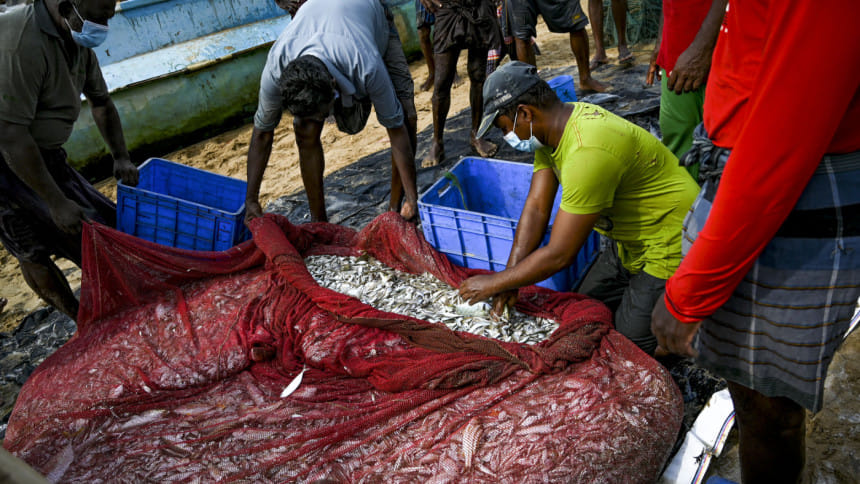Sri Lanka clamps down on remitters to curb informal money transfer

Colombo threatened Thursday to freeze the bank accounts of Sri Lankans working overseas who send money back to the country using informal money changers, as depleted foreign exchange reserves drive a thriving black market for dollars.
The pandemic has wreaked havoc on the island's economy, and the government has banned imports of food, vehicles and other items in an effort to shore up its stockpile of foreign currency.
These restrictions have led to severe shortages of food, cooking gas and cement, and Sri Lanka was forced to shut its only oil refinery last month as the country ran out of dollars to import crude.
The official exchange rate of 202 rupees to the dollar, offered by commercial banks that have run out of foreign currency, is well below the 240-245 rupees offered by informal money changers now in the central bank's crosshairs.
The bank's governor Ajith Nivard Cabraal said that migrant workers and others would face consequences if they sent their earnings home outside of official channels.
"Bank accounts of those who distribute and receive #money through #unlawful money transmission methods will be frozen with immediate effect," Cabraal said on Twitter.
He added that the central bank "urges all #migrant Sri Lankans to use only #legal channels to #repatriate their earnings".
The bank has also offered to pay a 10 rupee incentive to overseas workers who send money back through official channels, up from two rupees before.

 For all latest news, follow The Daily Star's Google News channel.
For all latest news, follow The Daily Star's Google News channel. 



Comments